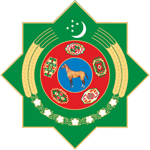Turkmenistan
The main directions of investment policy of Turkmenistan
The investment policy of modern Turkmenistan proceeds from the need to create a favorable climate for investment activity, both in the state and non-state sectors of the economy, as well as for foreign investors.
The main directions of the investment policy of Turkmenistan are:
- in the oil and gas industry, creating alternative options for bringing Turkmen energy to the world market through the construction of an extensive pipeline system and long-term partnership with leading international companies in the effective development of natural oil and gas reserves, deep exploration and development of hydrocarbon deposits both on land and on the Caspian shelf sea in order to increase their production, processing and export;
- in the chemical industry, an increase in the production of chemical products, including construction of new complexes for the production of carbamide, phosphorus fertilizers, caustic soda, iodine, chlorine, bromine, and their products;
- in the textile industry, saturation of the consumer market of Turkmenistan with high-quality domestic goods was chosen as the target of the investment policy. As part of this, it is envisaged to increase cotton fiber processing volumes within the state through the creation of new highly profitable textile enterprises, the introduction of advanced technologies, as well as the production of competitive products to saturate both the domestic and foreign markets;
- in other industries, diversification, development of both export-oriented and import-substituting industries based on the use of local raw materials were chosen as a strategic task.
- The investment policy in the agricultural sector provides for the production and processing of grain and cotton, as well as the preparation and processing of wool and leather raw materials. It is planned to increase production in the country of meat and dairy, fruits and vegetables and melons, fruits and berries, increase the number of livestock and poultry, and strengthen the forage base of animal husbandry.
- in the field of transport and communications, the main flow of investments is directed to the development of automobile, air, rail, river and sea transport, the creation of logistics centers. The complex modernization and diversification of the industry infrastructure continues, using the most advanced equipment to expand the communication system, digital television and radio broadcasting, and the electronic document management system is being systematically introduced;
- in the social sphere, investment policy is focused on improving the quality and standard of living of the population, employment of the able-bodied population by creating equal business conditions that increase the number of jobs. In this context, reconstruction and construction of the following areas of the social sphere and engineering infrastructure are envisaged: hospitals, health centers, preschool institutions, secondary schools, houses of culture, sports schools and structures, water supply systems, wells, sewer systems, communication systems, housing and communal services, hotel complexes, recreation centers, etc.
- investment policy in the non-state sector of the economy is aimed at the creation and development of small and medium enterprises and industries producing both export-oriented and import-substituting competitive products, organization and support of daikhan (agricultural) associations.



